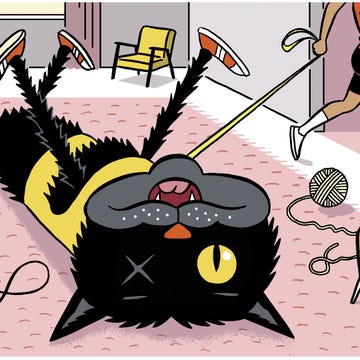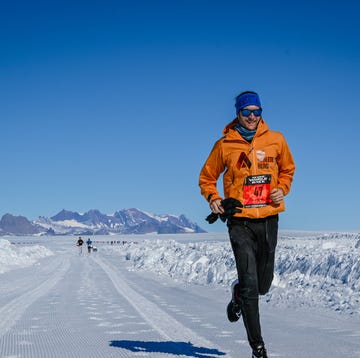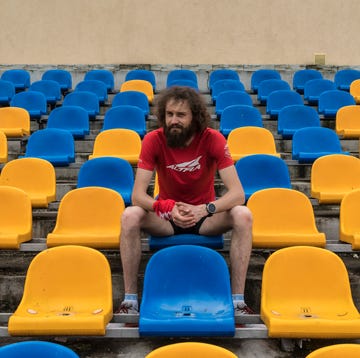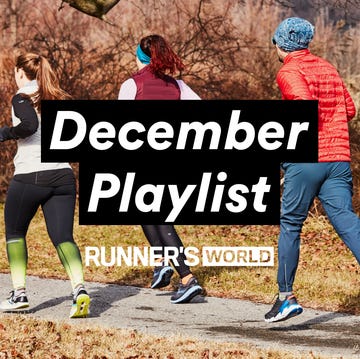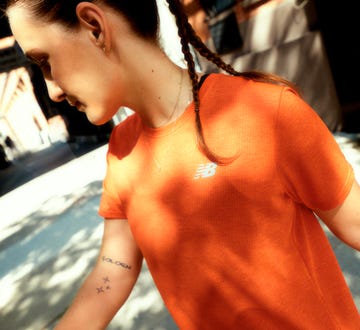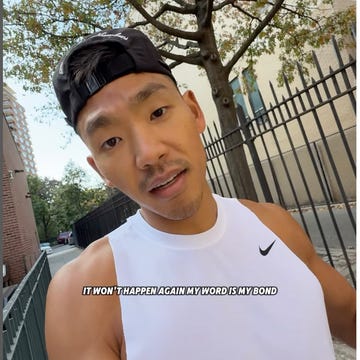“Mommy, did you win the race?” my 6-year-old daughter asked as we stood near my bedroom window looking out at Mount Adams.
DAA Industry Opt Out.
She said that was good.
We may earn commission from links on this page, but we only recommend products we back.
It was the morning of April 24, 2014, and I’d just flown back to Oregon from Boston.
As we stood together, I remembered where I’d been, just four months prior, when my world was unraveling.
When a stubborn calf injury had derailed my training, and with it the potential to run the Boston Marathon, a lifelong dream.
When after months of tests and mounting medical bills, the doctors still couldn’t explain my chronic dizziness, despite finding me “healthy” otherwise.
When work deadlines loomed and yet, my head was in a constant fog.
When the stress of it all was crushing my spirit, and the only deep breathing I was doing was to release tension.
My mind and body seemed to be falling apart all at once. Was this some kind of mid-life breakdown? If so, I needed Boston more than ever. It became my lighthouse.
In the past, I had always followed the mantra, "Get to the starting line healthy." However, that quickly changed to, "Just get there." And pray.
I revised my original 16-week training plan by cutting back on mileage, and running three days a week instead of five. A physical therapist helped me stay on the road when I doubted whether I could run at all. When it hurt to run, I walked. I also practiced yoga twice a week, which improved my balance and strength. Running on trails hurt less than pavement. Massages felt better than anything.
Three weeks before Boston, I headed out to my favorite trail in the high desert for a 20-mile run, shuffling through the last 5 miles with a sore calf and burning quads. Running used to feel like flying--nothing made me higher. Now, I felt like a bird with a broken wing.
Part of me wanted to throw my running shoes into the river below, but mostly I just accepted where I was.
Around mile 18, a group of hikers asked if I would take their photo.
“I’m sorry,” I said, “but if I stop, I may not start again.”
A Pro Athlete Takes on The Great World Race.
But I knew that while Heartbreak Hill would hurt under the best of circumstances, the heartbreak of not trying would be far worse. My legs would eventually heal. As for my head, there were no answers, yet.
When I stepped off the plane in Boston, however, everything seemed to change. Surges of adrenaline and excitement, spurred by the huge marathon welcome signs, started to dissolve my personal obstacles. The spirit of Boston seeped into my soul.
On race day, as we lined up in Hopkinton, all I felt was the rapture of being there. The sun was out. Everything glistened. I didn’t feel the usual race nerves--I just felt happy, alive, and connected. I wanted to stretch that moment, make it elastic, make it last.
Runners were sharing extra energy gels and stories of their own journeys to the historic starting line. We all had challenges to overcome, in one way or another.
I ran slowly. And then, slower. After the Newton Hills, when I was dizzy, nauseous, and my legs had had enough, I stretched my hands out to my sides so I wouldn’t fall, and let the steady roar of the crowds carry me, just as the roar and rhythms of the river by my trail had for months.
I crossed the finish line nearly 49 minutes slower than my qualifying time--my slowest marathon ever, and by far, the most meaningful.
“The unicorn has magical powers,” I said to my daughter.
Running Shoes - Gear.
I found the right doctor, who correctly diagnosed my chronic dizziness as vestibular migraine, which is now largely under control. I also discovered I had low ferritin levels (iron stores), and other nutritional deficiencies, which over time, have been replenished. My calf finally healed, too.
ldquo;The unicorn has magical powers,” I said to my daughter.
Cate Hotchkiss is a writer and marathoner living in Hood River, Oregon. She plans to try to qualify for Boston again in 2015.


